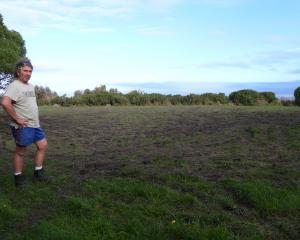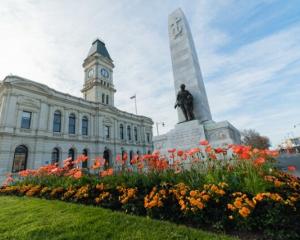
Since the start of spring last year, five new subdivisions in Twizel have sold out and builders are busier than ever before.
It is not idle talk about boom times in Twizel, says Mackenzie District Council planning and regulations manager Nathan Hole.
"We are definitely experiencing a boom in building and development, there’s no question about that; it’s just differing degrees across the district."
While there was more "value" in Tekapo, there was more "volume" in Twizel.
"And it’s not that there’s not high-value homes being built in Twizel, it’s just that there’s more of a range."
He could not provide Twizel-specific statistics when he spoke to the Otago Daily Times this week. Instead he said growth in Tekapo residential buildings were in the $600,000 to $1.2 million range, whereas the same in Twizel averaged about $350,000 to $650,000. There was "a lot of land that is still able to be developed in the Twizel area". However, L J Hooker property consultant Karan MacDiarmid said that was not the perception these days.
For those looking in the Twizel area at the moment, there was a shortage. Buyers had been buying off plans from the developers, "which has caught everyone short".
"There’s been a land shortage," Mrs MacDiarmid said.
"Basically what’s been happening is everyone’s doing a bit of a land grab because there’s nothing else."
Buyers no longer viewed Twizel as a "hydro town" and houses had started to become more expensive over the past 18 to 24 months.
"What’s driving it is the prices in Queenstown and Cromwell and Wanaka. That makes the Twizel area affordable for the average Kiwi."
And while most sales were to "locals" from Canterbury or Otago, there had been "an influx of North Islanders".
"Twizel’s on the map now. It’s a grown-up town. It’s a destination."
Twizel builder Ben Templeton agreed.
When Templeton Construction began 10 years ago in Twizel, it was "one guy" and an apprentice. The company had grown to ‘‘eight guys, plus a full-time office worker’’ and was being booked out up to a year in advance, he said.
"The last two or three years it’s just gone through the roof — just absolutely crazy and we’ve had to adapt to it, trying to get staff, trying to get people to come here and live find the right guys."
Mr Templeton apprenticed in Wanaka about 15 years ago and he viewed the market in Twizel now to be five years behind what Wanaka was then.
"We used to do your stock standard — nothing really too flash, nothing like you’d see in Wanaka or Queenstown, but now we’re on a $1.2 million build up in Ohau, plus we’ve just priced another couple to come in over here, over $1million houses, which is really upping the price for everything in the area.
"There was the occasional one over the years, but they were very few and far between, but now there’s so much more money coming in, with people wanting to build bigger houses — the 130sqm, 150sqm sort of house is gone now and it’s been replaced by the 300sqm, 400sqm house."
The money spent building a new house had increased "$100,000, $200,000" in the past two years.
While there were only a handful of builders in the area when he started out, he estimated about 30 builders worked in town now.
"The best part about it is we’re not all fighting for each other’s work either; there’s enough to go around," he said.
Mackenzie District councillor Paul Hannagan said it was only a matter of time before the town of about about 1200 people grew to 5000.
The tourism boom had started to put a strain on the town’s infrastructure, including parking and the water supply, but he said for permanent residents the town was safely within its limits.
"We’ve got so many tourists coming through, and people don’t want to see us turn into a Queenstown, and so the infrastructure work is being very carefully considered," he said.
"But you have that almost ’60s style Kiwi quarter-acre backyard sort of thing and the views are spectacular."
"I remember back in the ’70s when they were selling houses in Twizel for about $12,000, for a house and section, and I remember saying to my wife, we lived in Dunedin at the time, ‘Who the hell would ever buy in Twizel?’ And I’ve lived here for 15 years now and I keep kicking myself mentally, why didn’t I buy two or three houses back in the ’70s?"













